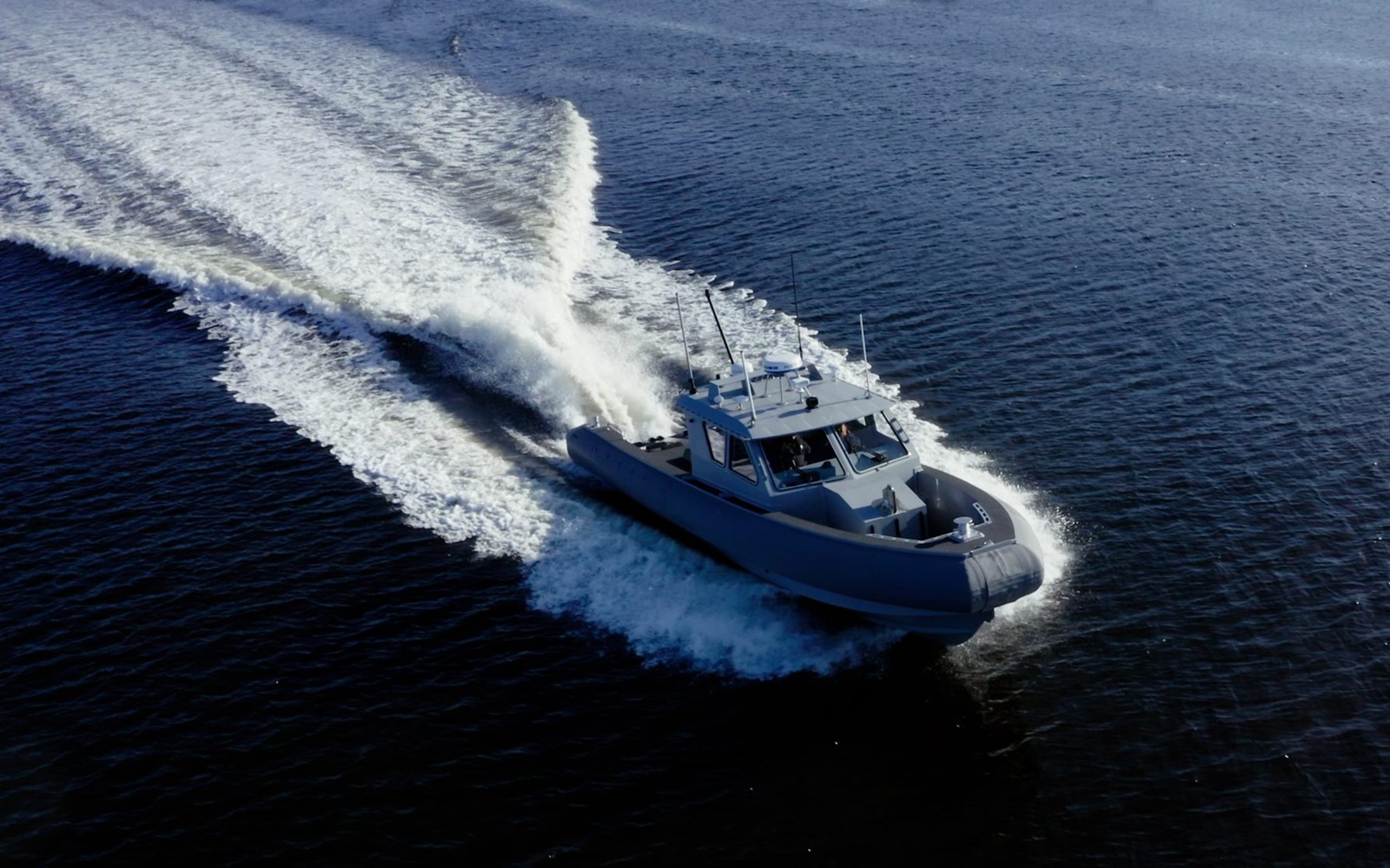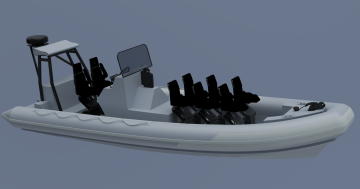
A Sentinel 12.5m watercraft similar to those built for the Royal New Zealand Navy. Photo: Sentinel Boats.
Derwent Park-based Sentinel Boats has received a grant from the Federal Government to buy new equipment to improve its production processes.
The $239,879 Defence Industry Development Grant has allowed Sentinel to purchase and install new heavy-duty equipment to lift and rotate boat hulls during construction, introduce digital touchscreen systems to manage design and production, and add a five-tonne mobile gantry crane to safely move large components.
The company says these upgrades will modernise its workshop, improve productivity, strengthen workplace safety and enable Sentinel to build more of its high-density polyethylene (HDPE) sea boats for export and future Defence contracts. It says this will strengthen Tasmania’s role in Australia’s sovereign defence capability and create secure local jobs.
The national Defence Industry Development Grant program has delivered 58 payments worth $16.5 million in its first round, providing matching grants of up to 50 per cent of eligible costs.
The grants help small and medium enterprises such as Sentinel to break into global markets; upskill defence industry employees; lift physical, personal and cyber security to Defence standards; and back advanced manufacturing for critical areas such as submarines, advanced Defence systems and surveillance technology.
Senator for Tasmania Carol Brown said the grant was a win for Hobart and for Tasmania’s advanced manufacturing sector.
“It means secure jobs for locals and opportunities for small business right across the supply chain,” she said.
“I’ve long pushed for Derwent Park and Goodwood to be places where Tasmanians can work in strong industry jobs and modern manufacturing. This investment helps make that happen and supports a future made in Australia.
“Sentinel Boats shows Tasmanian engineering skills are world-class. Their innovative vessels are already shipped around the world and will now help strengthen Australia’s sovereign defence capability.”
Sentinel CEO George McGuire said the systems acquired with the assistance of the Defence grant were already enhancing productivity.
“We now have the production capacity to meet our own navy’s and army’s future needs as well as a range of other government, rescue service and commercial fleet operators,” he said.
“Our contracts with the New Zealand Navy, and our award as their Prime Contractor of the Year in 2023, have really made our own and other Defence forces take note of what we are doing in building high-performance craft from high-density polyethylene (HDPE).
“High-density polyethylene is the next generation of boatbuilding material.
“Its longevity, durability, unmatched ride quality, and operational availability offer significant cost savings over many decades of service.”
Sentinel has supplied three 12.5-metre-long littoral manoeuvre craft (LMC) to the Royal New Zealand Navy (RNZN), and these have been at HMNZS Matataua at Davenport in Auckland for missions including dive operations, hydrographic survey support and reconnaissance.
It will also provide 14 rigid-hull boats (RHiB) to Ukraine under an Australian Government-funded assistance package, and will supply up to 20 780R RHiBs to the RNZN from later this year to replace its current sea boats.



